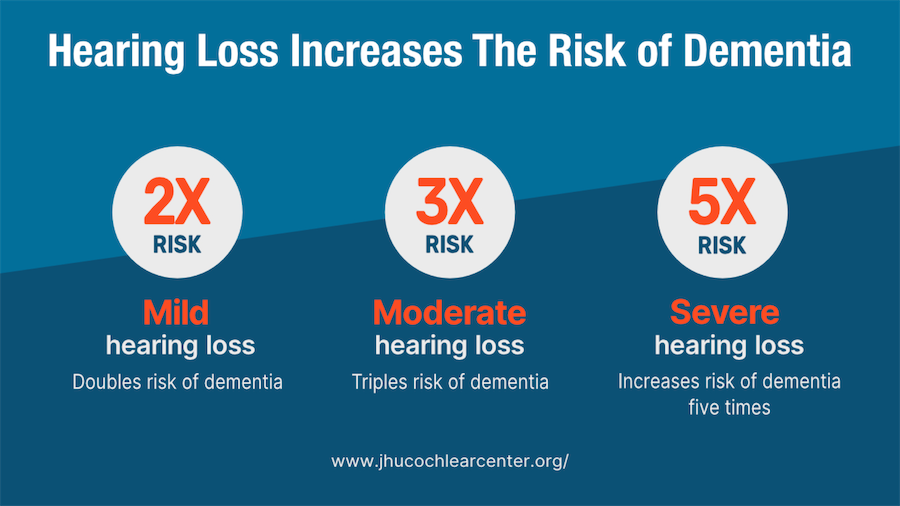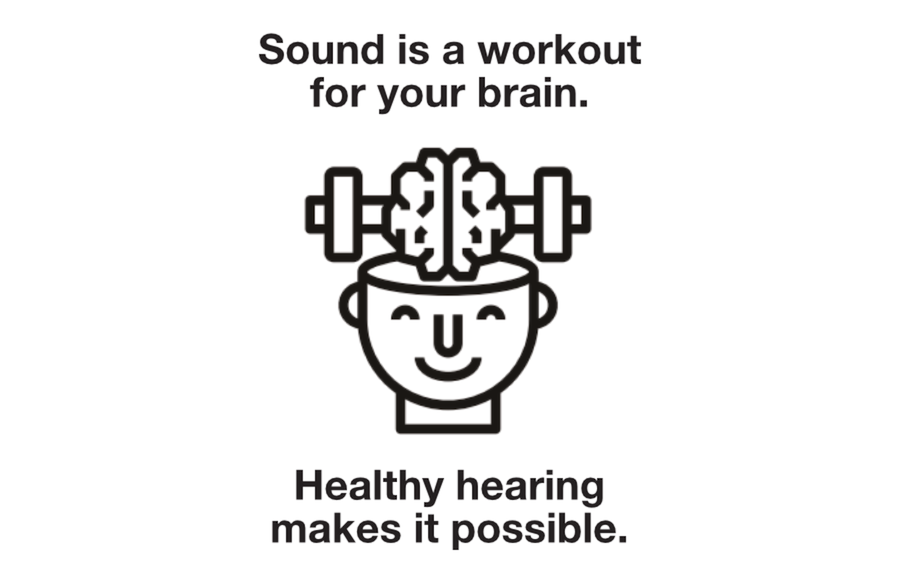Hearing is a vital component of a sensory-cognitive system and not an isolated sensory experience.
- When you improve hearing, you improve hearing-and-brain health.
- Likewise, when hearing deteriorates, so does the brain’s health.
As Dr. Nina Kraus of Northwestern University points out in an interview with The Wall Street Journal (2/6/2019), hearing loss influences much more than our hearing ability.
“Making sense of sound engages the brain’s cognitive, sensory, motor, and reward systems,” says Nina Kraus, a neuroscientist at Northwestern University in Evanston, Ill., and the founder of Brainvolts, an auditory neuroscience lab at Northwestern. “If we do not hear well, it will compromise how we think, feel, move, and [how we] combine experience from our other senses.” —Nina Kraus, Northwestern University, The Wall Street Journal, February 6, 2019
Hearing loss significantly impacts your health; understanding this is key.
How we hear
Hearing is made possible by the teamwork of the peripheral and central auditory systems. Your ears are the peripheral system, and your brain is the central system.
- Your ears capture sound waves, transform them into electric signals and send them to your brain.
- Your brain interprets the signals it receives from your ears as sound, creating the sensation of hearing.
Why it matters
When you have hearing loss, your ears send diminished signals to your brain, reducing not only your hearing ability but also the health of your brain.
- Clinical research shows that hearing loss alone increases the risk of dementia.
- For people over 60 years of age, hearing loss accounted for over one-third of the risk of all-cause dementia (Alzheimer’s accounts for 70% of dementia cases).
- The graphic below shows the relationship between hearing loss and the increased risk of dementia that Johns Hopkins researchers reported.

The impacts of hearing loss go far beyond the ability to hear well. Dementia caused by hearing loss takes away your ability to think and recognize loved ones — eventually, to know who you are.
Good news
Research has confirmed that hearing aids reduce the risk of dementia from hearing loss.
- A Johns Hopkins University study found that wearing hearing aids was associated with a 32 percent lower frequency of dementia in research participants with moderate to severe hearing loss.
How it works
- Hearing aids provide the sound your brain needs to be healthy. Sound thinking is more than an adage.
- Sound is vital for your overall well-being.

The benefits
Better hearing not only lowers your risk of dementia and improves your cognitive function and communications skills, but also improves other vital aspects of your health, such as
- Better social relationships with family and friends
- Better psychological health and sense of self-worth
- Better balance (less likely to fall)
- Better awareness of your surroundings while walking and driving
- Better overall physical health, fewer hospitalizations, and lower healthcare costs
“Recent studies suggest that wearing hearing aids could slow or actually reverse cognitive decline in elderly people.” —The Wall Street Journal, February 6, 2019
How much hearing have you lost?
Find out. Don’t guess. Call to schedule a free, 15-minute hearing screening with an audiologist.
If you have hearing loss, your audiologist will explain —
- How much hearing you've lost
- Whether your hearing needs treatment
- Hearing-aid options available for your hearing loss
Don’t let untreated hearing loss take away your quality of life.

